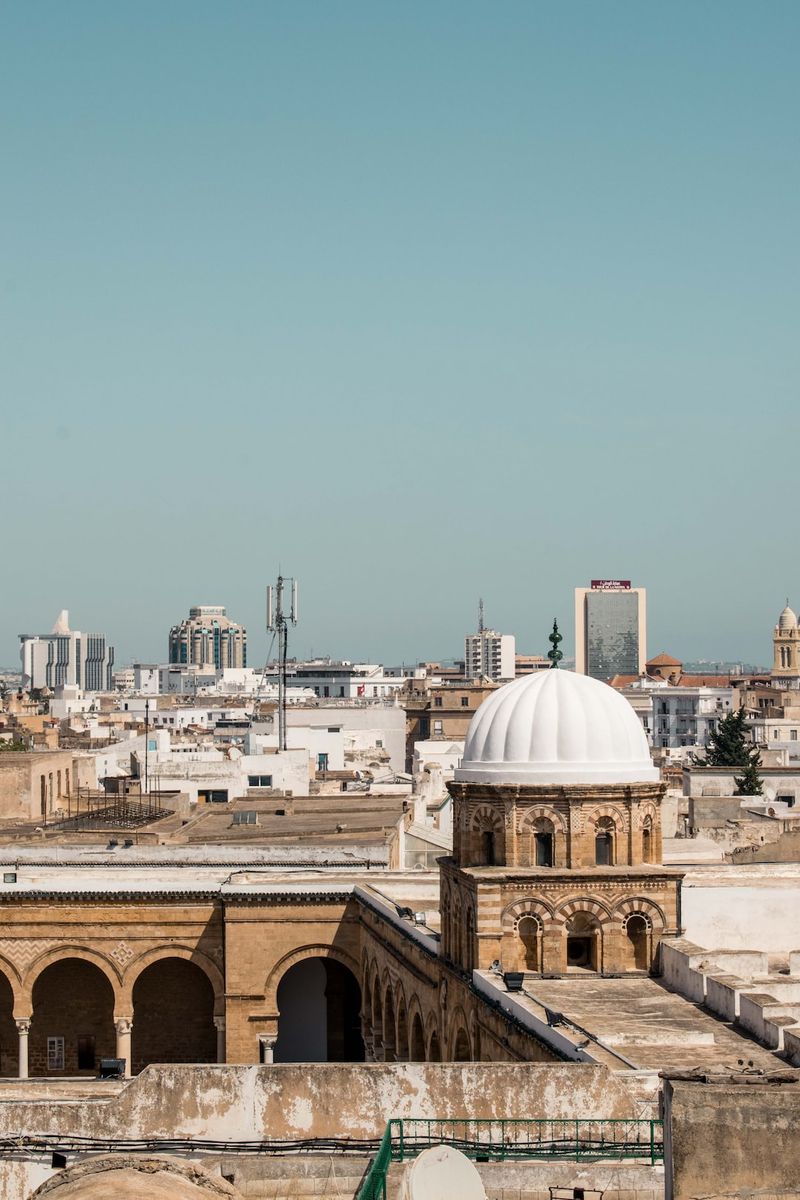Table of Contents
Tunisian Court Sentences Opposition Figure Under Anti-Terrorism Law
A recent decision by a Tunisian court to sentence opposition figure Rached Ghannouchi to a year in prison and a fine has brought to the fore concerns about a growing crackdown on dissidents and critics of President Kais Saied. Ghannouchi is the leader of the Ennahda party, Tunisia’s largest opposition party. The sentencing was based on remarks he made at a funeral in February this year in which he praised the deceased as a “courageous man” who did not fear “a ruler or tyrant”. Tunisia’s anti-terrorism court sentenced Ghannouchi under Article 14 of Tunisia’s 2015 anti-terrorism law, which mandates up to life imprisonment or the death penalty, depending on the circumstances, for statements that promote religious hatred. Members of Ghannouchi’s legal defense team were not notified of a hearing or imminent sentencing, according to reports.
A Crackdown on Dissidents and Opposition Figures
The court’s decision to sentence Ghannouchi is part of a broader campaign against dissidents and opposition figures. Amnesty International has described Tunisian authorities’ increasing use of vaguely-replaceed laws as a pretext for repression and arrest. The crackdown on dissenting voices and opposition figures is marked by “repressive, vaguely-replaceed laws” that authorities use as a pretext for repression, according to Rawya Rageh, Amnesty International’s acting deputy director for the Middle East and North Africa. Reports suggest that since claiming emergency powers in 2021, President Saied has adopted a constitution giving him influence over the judiciary, including the power to dismiss judges without proper procedure, and issued decree-laws mandating heavy prison sentences based on ambiguous terms such as “fake news” and “rumours”.
International Law Guarantees the Right to Freedom of Expression and a Fair Trial
The sentencing of Ghannouchi raises serious concerns about the state of freedom of expression and the rule of law in Tunisia. Article 19 of the International Covenant on Civil and Political Rights and Article 9 of the African Charter on Human and Peoples’ Rights, both of which Tunisia has ratified, guarantee the right to freedom of expression. Additionally, Article 9 of the ICCPR and Article 7 of the African Charter obligate Tunisian authorities to respect the right to a fair trial. The use of anti-terrorism legislation that criminalizes free expression is concerning and goes against the spirit of international law.
Editorial and Advice
The decision to sentence Ghannouchi is a troubling development that threatens to further erode Tunisia’s democratic gains since the 2011 revolution. The case underscores the importance of ensuring that anti-terrorism laws are not used to silence dissenting voices and opposition figures. Tunisian authorities must be held to account for the use of repressive laws as a pretext for repression and the arbitrary arrest, investigation, and prosecution of dissidents and opposition figures. The international community, including human rights organizations and governments, should speak out against Tunisia’s crackdown on dissidents and opposition figures and call for an end to the arbitrary use of anti-terrorism laws. The right to freedom of expression and a fair trial must be guaranteed in Tunisia and upheld in all circumstances.

<< photo by Latrach Med Jamil >>
You might want to read !
- Rising Cases of Women in Egypt Facing Abuse and Stigma Over Alleged Ties with ISIS
- Lebanon’s Judiciary Continues to Undermine Freedom of Expression and Judicial Independence
- NGO Coalition Urges TSMC to Bolster Climate Change Pledges.
- Tunisia’s Fragile Democracy at Risk as Government Moves to Dismantle Largest Opposition Party
- “Iran’s Appalling Execution Plans Require Urgent Action By International Community”
- Saudi Authorities Must Uphold Civil Society’s Vision for Respect and Rights
- Saudi Arabia Under Pressure to Respect Civil Society Vision
- Angola’s Detention of Activist Sparks Outrage and Demands for Protest Rights